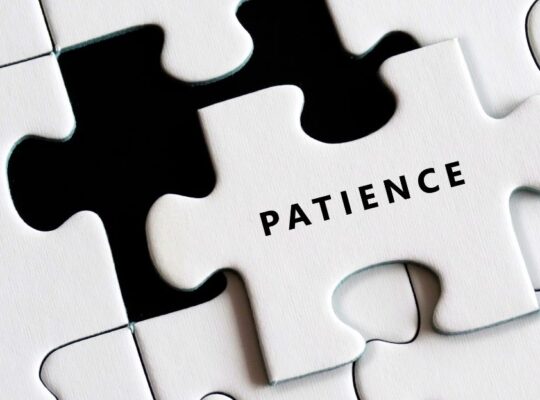Making new habits can be a daunting task, especially if you have tried and failed multiple times in the past. If you are determined to create sustainable habits, it helps to have practical strategies that can support your success.
Read on to learn the 30 actionable strategies that you can use to make the habit-forming journey easier. It covers topics like challenging yourself, setting small goals, measuring progress and creating an environment that supports change.
30 Action Steps To Make Your Habits Stick
With this guide at your side, you will feel more confident about developing successful new habits—and you will finally be on your way to a positive transformation!
1| Use The 80/20 Rule
The 80/20 rule can be a great way to make new habits and ensure they stick. This approach means that you focus on the 20 percent of effort that brings the greatest results, while making sure you don’t overstretch yourself with the other 80 percent which may be seen as ‘busy-work’.
When viewed in the context of a new habit it translates to focusing on the most relevant, powerful steps to create a change and resiliently maintaining them over time.
Although there are many different methods available when trying to form positive habits, adopting this rule can be an excellent approach – try it out today and see what changes it could bring about!
2| Start One Habit At A Time
Taking on too many habits at once can make it difficult to stick with them, increasing the likelihood of giving up altogether. To increase the chances of success, it is best to focus on one habit at a time. Start small and gradually build up from there.
Allow yourself enough time to adjust to any changes you are making, as these require a shift in both thoughts and behaviors. Solidifying your new routine and building momentum takes some patience and dedication; if successful, that single positive step can become the foundation for other positive habits down the line.
3| Break Bigger Habits Down Into Smaller Ones
Making new habits can feel overwhelming and sometimes impossible. To make it easier to follow through with the change you are striving for, try breaking down larger habits into smaller, manageable tasks. Focus on a few small changes at a time so that you don’t become overwhelmed and give up before making any progress.
Breaking bigger habits down into smaller ones will help provide structure to ensure that new habits stick and become part of your normal routine over time. When achievable goals are set, something as big as habit-forming can gradually be transformed into reality.
4| Bring Back Good Habits You Used To Have
Habits can be tough to form and stick to but having good habits that you used to practice can provide the encouragement necessary to make new ones successful. Strategies such as writing goals and reminders down, making a plan of action, tracking progress and rewarding yourself once the desired outcome is reached can be effective in bringing back old habits.
Make sure that the old habits are realistic and relevant enough to apply them in today’s life. Identify the benefits of each habit so that the motivation doesn’t wear off quickly.
Examining what worked previously will help you develop sustainable strategies for reinforcing them now. Having a supportive environment that reminds you of your successes also helps bring back the good habits you used to have.
5| Track Them
Making new habits can seem daunting and it can be tricky to stay motivated. Fortunately, there’s a great way to help yourself stay on track – tracking your new habit. By taking careful note of the small steps that you make every day towards forming your habit, you can reward yourself when you reach milestones.
For instance, if your goal is to read 30 minutes each night, mark down each time you read and congratulate yourself when you hit consecutive days or weeks in a row!
Tracking your new habit will also give you an opportunity to monitor how well it’s going so that if something isn’t working as intended, you’ll know where adjustments are needed. With regular goal tracking, creating enjoyable habits could be much easier than ever before!
6| Challenge Yourself
Taking on something new and challenging can seem daunting, but it’s the best way to start learning a new habit. Setting ambitious goals can help to keep you motivated, but make sure they’re achievable; nothing is worse than setting yourself up for failure. You should also break down larger tasks into smaller chunks so you’re not overwhelmed when starting out.
Celebrate each step that gets you closer to fulfilling your goal, no matter how small. This will give you the necessary confidence and motivation to continue striving for your desired results. The more responsibility and ownership you take for shaping your habits, the more likely it is that you’ll be successful in forming your new ones.
- 30 Day Challenge of Empowering Habits
- 30 Day Challenge To Improve Your Self Discipline
- 30 Day Challenge to Improve Your Thoughts
7| Create An Environment That Supports Change
It can feel like an uphill battle to make positive changes in our lives and build healthy habits. To make the process less daunting, create an environment that is conducive to change. Start by identifying any sources of friction, such as unhealthy influences or a lack of motivation, and then work to alleviate it.
Let go of any perfectionism that may be holding us back, remind ourselves why we are looking to make these changes, and best of all get the people who care about us involved in our journey. Doing this provides support and accountability while helping channel our energy in the right direction.
Through creating an environment that promotes lasting change we increase our chance of success and form behavior patterns that remove all obstacles on the way to a rewarding sense of accomplishment.
8| Get Rid Of The Bad Habits
Creating new habits can seem like a daunting task, but taking it step by step can make all the difference. A great place to start is to do some honest reflection on existing bad habits.
Take time to figure out why they exist and how they are negatively impacting your life. Once you’ve identified the root causes of bad habits and made a decision to change them, it’s time to identify ways in which those habits will be replaced with healthier ones.
This could include scheduling more time for physical activity, avoiding toxic people, or drinking more water throughout the day. As long as these new habits are slowly and intentionally integrated into your lifestyle, you will eventually see an improvement in overall well-being without having to sacrifice or completely get rid of old bad habits.
9| Take Time To Fully Relax
Taking time to relax and make room for new habits can have a big impact on our life. Setting aside stress-free time helps clear our minds and allows us to focus on the task at hand, whether that’s getting healthy, learning something new, or even just picking up a chore around the house.
Taking time for reflection gives an opportunity to identify bad habits that are holding us back and replace them with positive routines that we’ll stick to long term. By taking a moment each day – be it a walk in nature or breathing exercise – you’re setting yourself up for success in making lasting changes that will help you lead a happier, healthier life.
10| Make Them Fun
Making new habits can be difficult, especially if they don’t involve things we enjoy. That’s why it is important to make habits fun! Try thinking of ways to incorporate small rewards or games into your routine.
For example, if you’re trying to get into exercising more and find it unenjoyable, try setting up weekly reward systems after completing a certain number of workouts or competing with friends to reach a common goal. Making new habits should feel like something you look forward to rather than dread. This can help increase the likelihood that your new habits stick in the long run.
11| Be Flexible
Forming healthy habits can be a great way to build a more meaningful life, but it is important to remember that the process itself should remain flexible. Too often people get caught up in rigid expectations that can be hard to keep up with, so not meeting their goals creates guilt and frustration. Rather than getting stuck in this cycle, it is essential to create realistic standards that you can strive for without overburdening yourself.
Taking the time to be introspective about what you can realistically commit to on your own timeline will encourage personal growth while creating an efficient path towards achieving your goals. Being flexible in forming habits allows you to look deeper into yourself and invest in a better future without being weighed down by superfluous expectations.
12| Leverage Social Support
Creating new habits can be difficult and sometimes motivation is hard to come by. Leveraging social support can, however, go a long way towards helping you build or break new habits. Involving others in the process of creating a new habit drastically increases your chance at success because it gives you accountability and external feedback on your progress.
Building up your personal network is essential and talking to people who understand what you’re trying to do and can empathize helps immensely in challenging times.
Having a positive support system is especially helpful when it comes to forming habits, as the encouragement and inspiration from these relationships can help with staying focused on the goal.
13| Commit To 30 Days
Developing a new habit doesn’t have to be overwhelming. A simple and effective way to foster lasting change is to commit to 30 days of consistent practice. It takes roughly 30 days of doing something for it to become a habit. This could be anything from drinking more water, taking a daily walk, or doing some form of exercise each morning before breakfast.
Start small and make your goals achievable – then stick with them for the full thirty days! You’ll be surprised by how quickly you can see permanent lifestyle changes when you commit to forming new habits over the course of a month.
Do this repeatedly, and before too long you’ll find yourself well on your way toward building healthy lifelong routines for yourself!
14| Make Them Routine
Establishing a new habit takes hard work, but it’s easier to stick to if you make it routine. Habit-building experts recommend committing to the same time for carrying out the habit each day and adding reminders or visual cues in your environment to help keep you on track.
When regular reminders are put into place along with doing the same actions at the same time of day, it helps your brain establish a link between those two pieces of information, making it easier for you to follow through.
If you stick with it, eventually performing the action will become second nature. So don’t be discouraged if forming your new habit feels like a struggle at first – with determination and commitment, soon it will truly become part of your everyday routine.
15| Make Them A Part Of Your New Identity
Forming new habits can be a challenge, but it’s an important step for improving our lives and reaching our goals. A great way to make this process easier is by viewing the new habit as part of your identity. Rather than thinking of it as a chore or an added task, view it as something that will help define who you are.
For example, if you want to start going to the gym on a regular basis, try thinking of yourself as someone who values their health and takes steps to ensure they stay in good shape.
This subtle shift in perspective is often enough to motivate us to work on forming and maintaining habits we need in order to reach our objectives. Incorporating new habits into your identity is a powerful tool for finding success.
16| Use Reminder Apps
Making new habits isn’t always easy, but with the help of technology you can give yourself a helping hand. The Reminders app on your phone is a great way to ensure that you stay on top of changing your routine and creating sustainable practices. With this easy-to-use app, you can retain helpful information like what tasks to complete, where to find materials and even when your deadlines are – all in one place!
Best of all, this app features alerts so you won’t miss a beat when it comes to making those positive changes. Together with a bit of effort and dedication, the Reminders app will allow you to develop better habits and keep them going.
17| Embrace Imperfection
Making new habits is never an easy task. Trying to replace an old behavior with a new one can be trying on patience, but embracing imperfection is the key to success. It is important to understand that it takes time, practice and mistakes to build a new routine and gradually break away from the old behaviors. The real challenge lies in giving yourself permission to make mistakes.
Once you accept minor setbacks and use them as learning opportunities instead of wallowing in disappointment, you will find that it’s much easier to become motivated and commit to creating these healthy habits.
Taking slow but consistent steps is one way of gradually making these new changes part of your life, as perfection should not be the goal here – steady progress towards your goal should be!
18| Stay Away From Temptation
Making a new habit can feel like you’re heading up a mountain, and staying away from temptation is your rope line. Knowing what temptations might be in your way and being aware of strategies to manage them can help you succeed on the journey to building a new habit.
While it may be easier said than done, it’s beneficial to remember that old habits die hard and avoiding situations that have been known triggers for bad behaviors in the past can be a great starting point. Enlisting the help of friends or professionals, who understand your situation and are willing to support you while making changes, can also be beneficial in helping make your new habit successful.
19| Write Them Down
It can be hard to stay motivated and properly track the progress of these changes. Writing down those desired habits can provide a helpful visual record that you can reference often, as well as important accountability measures.
Not only will writing down your goals help to clarify precisely what you wish to accomplish, but it also provides a tangible metric by which you can measure your success and behavior against.
Tracking your performance allows for reflection; looking back over time, you can observe any shifts that might have occurred if a certain habit hasn’t stuck or if new patterns of behavior become evident. Writing it down gives form to ideas and helps lead to great new habits!
20| Do It For Yourself
You are far more likely to persevere if your goal is something that you have chosen for yourself, rather than if someone has told you that you “have to” do it. When setting goals or forming new habits, ask yourself why these changes are important to you and how they can benefit your life. Writing down short and long-term goals will help keep you motivated and on track.
Learn from mistakes and don’t beat yourself up when things don’t turn out as planned – this way, small setbacks won’t derail all of your hard work. Making routines part of your daily schedule will help ensure success – doing the same activities each day for even a few minutes helps create the habit and makes it much easier to follow through with. In the end, choose goals for yourself that you believe are important for the betterment and stick with them.
21| Use Your “Flow State”
Forming habits can be an intimidating endeavor. Breaking old or ingrained habits is especially challenging, and creating positive ones takes time and consistency. However, the experience can be greatly enhanced and the results expedited if you use your “flow state.”
This is a mental state where you become so immersed in a task that time seems to disappear. You feel focused, energized, and are able to access higher levels of creativity than you normally could while also losing your sense of self-consciousness.
Using mindful meditation and focusing solely on the task at hand are essential elements in accessing this flow state–whether it is for forming new habits or merely completing small tasks more quickly. Making use of this “flow state” when attempting to form new habits can help ensure that you reach your goals faster with less effort!
22| Gamify Them
The idea of gamifying habits is a simple, yet effective tool to help you form healthy routines and break bad ones. It works by introducing rewards into the process of forming a new habit, and creating a positive reinforcement system that brings motivation and accountability to your regular activities. By turning tasks into game-like challenges, you can track your progress, set goals, and have fun while doing it.
The positive feedback loop will help create an enjoyable experience in the pursuit of better lifestyle choices. Whether it’s taking steps to reach a fitness goal or trying something completely out of the box – using game elements incentivizes us to stick with our efforts until they eventually become easy habits to maintain.
23| Use The Habit Loop
Many people struggle to make new habits stick in the long term, but there is hope! Making use of the habit loop helps make forming long-term habits easier than ever. The habit loop is a concept that focuses on three interconnected parts: cue, routine, reward.
All three need to be identified and worked with if you want to successfully form a lasting habit. For example, if you wanted to start exercising more regularly, your cue could be the sun rising each morning; your routine could be going for a jog, and your reward could be a feeling of accomplishment from taking care of yourself.
When each part of the loop is properly established and reinforced, it becomes much easier to maintain regular healthy habits – ultimately helping you reach your goals!
24| Habit Stacking
Making lasting lifestyle changes is hard, but that doesn’t mean it’s impossible. Habit stacking is a technique that is often used to help people develop and stick with new habits over time. The idea behind habit stacking is to attach your chosen habit to an existing routine that you already do each day or week and gradually build on it until the new habit becomes second nature.
For example, if you’d like to begin exercising more often, you could stack a five-minute workout after your morning shower or coffee. As this practice becomes ingrained into your daily routine, you can increase the intensity of your workout or add extra movements as needed.
Habit stacking allows for a gradual transition from old patterns to new ones without overwhelming yourself too quickly. This is just one way to make lasting changes in your life and stay committed in the long term.
25| Scheduling
Forming a new habit can be difficult at first, but with the right mindset and enough persistence, you can turn it into your everyday routine. One of the best ways to ensure that a new habit is sticking is by scheduling it. By having specific times marked out in your calendar, dedicated solely to that habit, you are more likely to remain consistent and complete the desired action.
Planning ahead and knowing when you will be engaging in the task can help provide structure and clear expectations on how much habit forming time you should dedicate each day or week.
Scheduling also acts as an important visual cue and reminder to keep up with your goals. If done correctly, scheduling will become part of your natural environment and serve as triggers for us to follow our designated plan for forming a lasting habit.
26| Reward Yourself
Creating and sticking to new habits can be challenging, but one sure way to make sure that you stay on course is to reward yourself. This could be something as simple as taking a break after completing a task or treating yourself to a small item for meeting your goals.
Positive reinforcement can help motivate an individual toward good decision-making, so allow yourself small rewards along the way and see how much easier it makes to stay on track with your habits and goals.
Don’t rely entirely on extrinsic rewards as they can be distracting and cause you to lose focus, though—it’s important to also value the intrinsic feelings of accomplishment and pride in yourself.
27| Bet On Yourself
Creating new habits is an important process that requires dedication and commitment to achieve success. One way of ensuring you stick to your new habits is to bet on yourself. It involves making it more difficult for yourself to break the promise you make. For example, you can seek the support of a friend or family member who will keep you accountable and help motivate you when you feel unmotivated.
Additionally, consider setting up a reward system for yourself that incentivizes you to keep going even when it feels tough. Reinforcing good behaviors with rewards helps form strong connections in the brain which make it easier for good habits to stick. So remember to bet on yourself every time when creating new habits and eventually, it will become second nature for you!
28| Expect Failure
Making a new habit is no easy feat. It involves effort and consistency to form a sustainable change. That said, it can be discouraging to find ourselves slipping back into old routines and behaviors.
To build strength in our new habits, it is important to expect failure as a part of this process — to not just anticipate mistakes, but also create an action plan for what you’ll do when things don’t go according to plan.
By going in with this attitude of “failure is part of the journey” we allow ourselves room for flexibility and grace. Shifting our mindset from fear of failure-driven perfectionism to appreciation for our imperfect efforts is the key to making new habits stick.
29| The Compounding Effect
Having good habits can make all the difference in reaching our goals and improving our lives, but establishing those habits can be difficult. One way to make sure that you’re successful in creating new habits is through the use of the compounding effect. The idea behind this is to start out small with a habit and build upon it over time.
So by forming these small steps into a habit, bigger changes will eventually occur thanks to continuing repeating the same behavior over time. This can take discipline and dedication, but the rewards are worth it! Utilizing the power of compounding effects has been proven successful time and time again, so why not give it a try? You may just surprise yourself at what new benefits you gain from forming your desired habits.
30| Use Systems Before Goals
Establishing new and better habits is a popular goal during the New Year, but actually forming and committing to them can be difficult. A great way to increase your chances of success is to focus on creating a system before making goals. Developing systems that trigger desired behaviors help put the ideal habit in motion, replacing older and less desirable habits with better ones.
Setting up systems with stimuli such as pre-decided cues can help you practice healthy habits faster than relying on individual motivation for starting them. This approach enables one to form behavior patterns which not only make it easier to stay consistent but also make it more systematic and effortless to turn any habit into second nature.
Habits are an integral part of our lives and controlling them can be difficult. Luckily, every technique explained within this guide is tailored towards ensuring success in the long term through actionable steps, practice tips, and real life examples that make the task of forming better habits feel attainable.
Whether trying to create healthier eating or exercise habits, break bad ones, or improve any other aspect of your life, this guide will give you the right support and advice.







